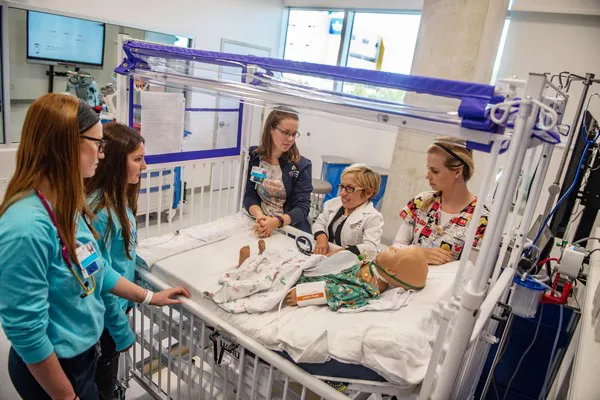Georgia’s reluctance to expand Medicaid coverage to bridge the health care coverage gap leaves nearly half a million residents, including small business owners, farmers, veterans, and various workers, without access to affordable health insurance. Despite being just above the threshold to qualify for Medicaid, these individuals cannot afford private health insurance, creating a significant gap in coverage.
The implications of closing this gap extend beyond health care policy; it holds considerable economic significance for Georgia. Not only does it address the needs of those lacking coverage, but it also yields substantial benefits for the state’s economy as a whole. Recognizing this, the state’s business leaders advocate for closing the gap to foster a healthier, more productive workforce and ensure sustained economic prosperity.
Recent research conducted by Regional Economic Models Inc., commissioned by the Georgia Health Initiative, underscores the economic potential of closing the coverage gap. The findings indicate that such action would catalyze the creation of over 51,000 new jobs, not only within the health care sector but also across various industries such as construction, retail trade, and administrative services. Moreover, Georgia households stand to gain an average annual increase of nearly $900 in personal income, translating to a statewide total increase of $3.6 billion.
The economic ripple effect of closing the coverage gap extends further, stimulating new consumer spending and investment in Georgia’s economy. Over the first three years, the state’s economic output would surge by $9.4 billion, accompanied by a $5.5 billion increase in gross domestic product. Rural communities, in particular, stand to benefit significantly, with an estimated one-sixth of the total economic benefits projected to reach these areas, fostering job creation and boosting personal income by $477 million.
Furthermore, closing the coverage gap holds critical implications for Georgia’s struggling rural hospitals. With several rural hospitals facing closure or drastic service reductions, ensuring access to reliable reimbursements through expanded coverage is imperative for their financial stability. Additionally, closing the gap incentivizes more health care providers to offer services in rural areas, addressing the shortage of primary care and specialty doctors in these regions.
From a fiscal standpoint, closing the coverage gap proves to be financially prudent, allowing Georgia to reclaim $3.6 billion in federal tax dollars and benefiting from Washington’s commitment to covering 90% of the associated costs. Moreover, the state stands to realize savings in child welfare and law enforcement expenses.
Despite broad public support, evidenced by 76% of Georgians favoring the closure of the coverage gap, legislative action has been delayed. While the creation of a commission for further study signals ongoing engagement, urgent action is needed in the next legislative session to capitalize on the economic benefits that closing the coverage gap promises. The economic vitality of Georgia hinges on seizing this opportunity for bold action and ensuring equitable access to health care for all residents.
Related topics:
- A Healthy Diet for Young Men: Nourishing the Body and Mind
- 5 Best Daily Vitamins for Young Men
- Identifying & Managing Cold Symptoms in Newborns: A Simple Guide


